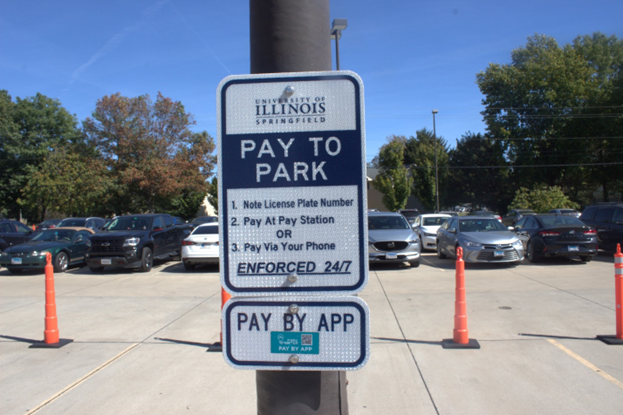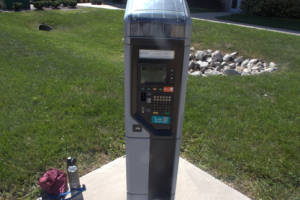At the University of Illinois Springfield (UIS), students, faculty, and visitors are all required to pay for parking. While this policy has been in place for some time, it continues to generate debate, with some members of the campus community questioning the necessity of the fees, especially in light of other financial burdens such as housing, tuition, and student fees.
Critics argue that parking fees add unnecessary financial strain. However, the university maintains that the charges are essential for the upkeep of campus infrastructure. According to the UIS Parking Operations website, parking is a self-sustaining service that does not receive funding from tuition or the state. “All revenue generated goes into the operation and maintenance of the parking infrastructure,” the site states.
Dawn Barding and Rachel Tohme, instructors for the Nursing Program at UIS, shared their perspectives on the issue. Tohme expressed that transparency about how the money is spent could help alleviate concerns. “If the University were more transparent about what they did with the money for parking, I wouldn’t mind the fees,” she said. Barding echoed this sentiment, adding that she would accept the fees if they were used to improve campus conditions. “If the money is going to be used for repainting the roads or maybe fixing the parking lots so there isn’t standing water, then I wouldn’t mind.”
Visitor parking also raises concerns. Barding pointed out the inconvenience of long walks from the outer visitor parking lots, especially during harsh winter months. She also noted that the parking meters aren’t always reliable, which adds to the frustration.
Public History graduate student Lilian Georgiou took a stronger stance, stating that neither students nor faculty should have to pay for parking. “I don’t believe that students and faculty should be charged at all,” Georgiou said. She argued that the fees pose a financial burden to students and that faculty members should not have to pay to park at their workplace. “If the university cannot find the funds to maintain its parking lots from what I am already paying them, they need to reevaluate their budget,” she added.
Despite these frustrations, UIS offers a range of parking permits tailored to different members of the campus community, including yellow tags, blue tags, and residential tags. Visitors, however, must pay to park and are limited to specific lots.
The debate over parking fees isn’t unique to UIS. Neighboring institutions like Lincoln Land Community College offer free parking to students, which further fuels the discussion about whether UIS’s parking policy is fair or necessary. While opinions remain divided, the parking fees at UIS continue to be a point of contention as students and faculty weigh the costs against the benefits of a well-maintained campus.











